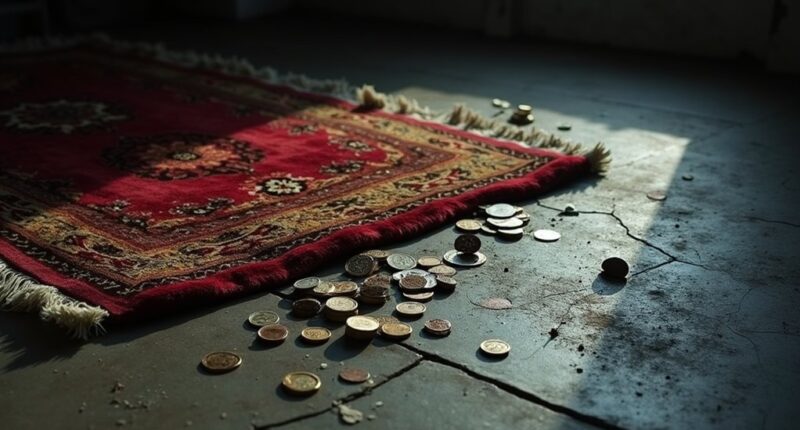Soft rugs in crypto are deceptive scams where founders, shrouded in calculated betrayal, quietly dump tokens and abandon projects, leaving investors with worthless assets. Don’t be fooled by their stealth; unlike abrupt hard rug pulls, these schemes bleed value slowly, eroding trust through empty promises and fake hype. Where’s the accountability for such insidious tactics? Investors must wake up, demand transparency, and stop swallowing lies. Stick around to uncover the warning signs and protective strategies.

While the crypto world dazzles with promises of decentralized fortunes, a sinister shadow lurks beneath—soft rugs, those insidious scams where founders slink away, wallets fattened, leaving investors clutching worthless tokens. Unlike the brazen thievery of hard rug pulls, with their coded traps and overnight collapses, soft rugs creep in, stealthy and vile, draining value over time through calculated deception. Founders, those supposed visionaries, quietly dump their holdings, masking their exits as mere market whims, while naive investors cling to hollow hype. It’s a slow bleed, a betrayal cloaked in plausibility, and the crypto faithful deserve better than this slimy charade.
These scams thrive on misinformation, not malicious code, as developers weave illusions of progress with empty social media buzz and fake community engagement, all while cashing out behind closed doors. Promises of updates vanish into thin air, leaving backers stranded with devalued tokens—oh, how convenient for the absconding architects! The project lingers, technically “alive,” making legal recourse a bitter joke, even as trust erodes, not with a bang, but a maddening whimper. Investors, burned by gradual losses, watch ecosystems crumble, their confidence in crypto’s promise tarnished by this underhanded rot. Centralization in project structure often enables insider attacks, amplifying the risk of such betrayals. Soft rug pulls, by design, create a false sense of security, lulling investors into complacency before the inevitable collapse false sense of security. The extended timeframe of these schemes makes them particularly difficult to detect, requiring investors to maintain vigilant monitoring of project developments and token movements.
Distinguishing soft rugs from market dips or delays is a maddening puzzle, yet the signs scream for attention: steady sell-offs by founders, anonymous teams dodging accountability, and overblown marketing in niche fads like yield farming or NFTs. Polywhale Finance, for instance, saw its team siphon over $1 million before ghosting, a textbook gut-punch to the duped. The fix? Demand KYC-verified identities, scrutinize token activity, and stop swallowing hype whole. Crypto isn’t a playground for con artists—investors must wield skepticism like a blade, slicing through the fog of false prophets before wallets bleed dry.
Frequently Asked Questions
How Can I Identify a Potential Soft Rug Project?
To identify a potential soft rug project, one should watch for unrealistic promises, lack of transparency, poor documentation, unstable token prices, and founders withdrawing tokens quietly, as these signal possible deceptive practices.
What Legal Actions Can Victims of Soft Rugs Take?
Victims of deceptive crypto projects can pursue legal actions such as class-action suits, individual civil lawsuits, or criminal charges if fraud is proven. Asset seizure and international cooperation may also aid recovery efforts.
Are Soft Rugs More Common in Specific Crypto Sectors?
Examining the prevalence of certain deceptive practices, it becomes evident that they are more common in specific crypto sectors. DeFi projects, token launches, and NFT schemes frequently exhibit higher incidences of such subtle scams.
How Do Soft Rugs Impact Overall Crypto Market Trust?
The impact of deceptive practices on crypto market trust is significant. They create uncertainty, erode investor confidence, and foster skepticism, ultimately discouraging participation and hindering the growth of the broader cryptocurrency ecosystem.
What Tools Help Detect Soft Rug Warning Signs?
Tools to detect warning signs of potential scams include blockchain explorers like Etherscan for transaction monitoring, smart contract auditors like Chainalysis for vulnerability checks, and crypto tracking sites for price trend analysis.









